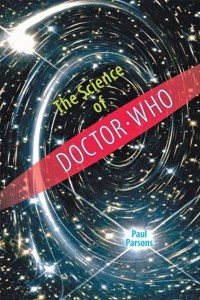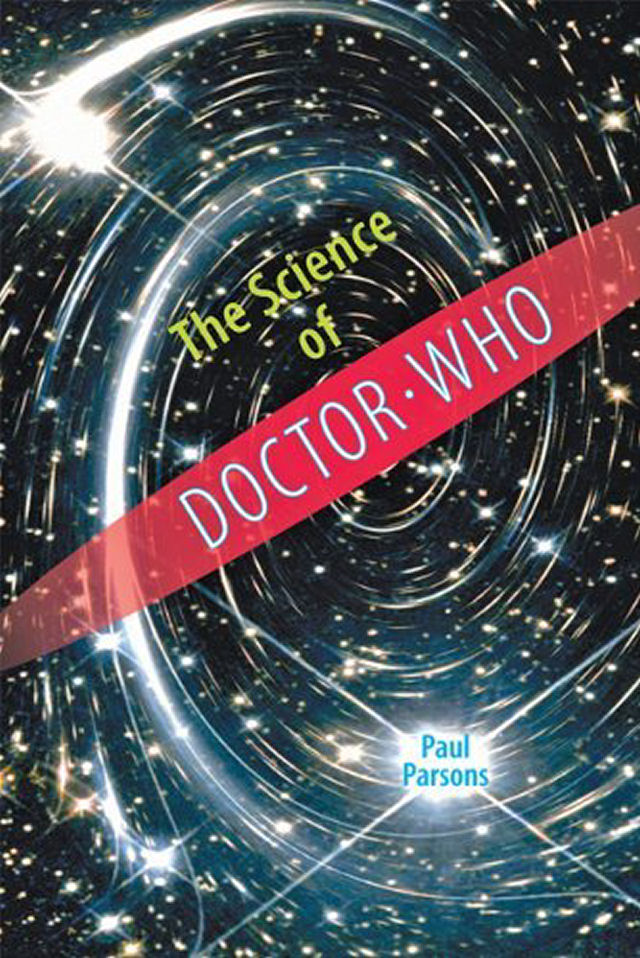
Because when you can capitalize on a media sensation without breaking copyright laws, why shouldn’t you? The Science of Doctor Who takes the science and quasi-science and pseudo-science you can find in Doctor Who and compares it to the state of real world science (and techology).
I never found it so dull that I wanted to completely stop reading it, but I didn’t find it fascinating or captivating for the most part. A lot of the science that was included were things I already knew, or studies I’d already heard of. Some of it was new, but already I couldn’t call up one example of it.
At times, he got so deeply involved in explaining some scientific concept that he’d go for pages without even mentioning Doctor Who.
It also seemed to me that he kept referring to the same episodes. He’s really keen on “The Empty Child” and “The Doctor Dances”, using them for all sorts of examples of things. And most of the older Who episodes he mentioned were ones I’d seen or heard of, because they were released on DVD. Which started to make me wonder if he’d really watched all the Who he could possibly watch, or only hit the highlights.
Right at the start, it says the book has been updated up until the Eleventh Doctor. But don’t expect a lot of updates. Ten doesn’t even get much action. And right in the first chapter, the first paragraph even, he says we don’t know if the doctor has a family. Apart from calling a girl his granddaughter in the first series. Well, we all know there’s more family than that!
Where I really took objection to what he was saying though was in regards to Jack Harkness. He says in the future everyone’s bi and then blithers on about not having to reproduce in the traditional manner, so being straight is no longer biologically necessary. Or something. But Jack is not bi, because he doesn’t limit himself to two genders, or even to humans. And the kiss he and the Doctor shared is a not a ‘gay kiss’. Because neither of them is gay!
Oh, oh, and then he talks about this idea that this female scientist had that.. wow, the Doctor could regenerate as a woman! And he thought it’d blow our minds a little if the Doctor were transgender. I think it was him that had his mind blown when she mentioned the idea.
Back to the science.. I don’t know how many explanations I’ve read now about the theory of relativity and gravity and time and the speed of light. I don’t pretend that I understand it fully, but I’m not really eager to read about it anymore. I think that sort of thing is better demonstrated with video. Not little graphics and text written by a non-scientist.
I wish there had been more Dr. Who images in the book. Or like.. anything. I think one picture might’ve featured the TARDIS. I guess they didn’t want to pay any licensing fees. But it made the graphics that were included all the more boring to look at.
Well, that all made me sound rather down on the book. But overall it wasn’t bad. It wasn’t a slog. If you like Doctor Who and want to learn about cutting edge science, go for it. If you just want to get your geek on, probably Chicks Who Dig Time Lords is a more interesting read. And if you’re looking for science, go for Michio Kaku or Neil deGrasse Tyson.


That’s a good point about referencing the same episodes over and over. He talks about “The Ice Warriors” an awful lot, I noticed.
In fact, my research on the internets turns up that Parsons has a PhD in cosmology, so he’s not actually a non-scientist, though he doesn’t seem to be a -practicing- scientist.
I’d be really interested to hear your opinion on The Physics of Star Trek. I think it was better than this. Have you read it, J? Of course it contains the obligatory explanation of relativity, too.
I don’t think I read The Physics of Star Trek. Is that all specifically physics? That could lend it more coherence right from the start.
It’s pretty specifically physics, yeah. And he groups things together in larger categories rather than separating them out into tiny essays, so he can use the same explanation to build to several different things.